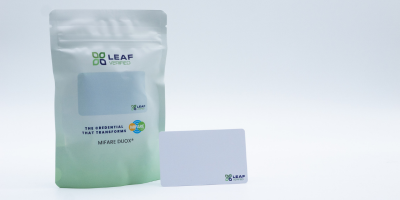The case for universal access control standards is compelling, but how do organizations actually make the transition? This practical guide explores who should join the LEAF Community, what benefits they can expect, and how to implement LEAF successfully.
For integrators, LEAF represents a fundamental shift toward more profitable, efficient projects. According to industry research, strategies like volume discounts, phased implementation, and standardized components can reduce project costs by 20-40%, enabling integrators to offer more competitive pricing while maintaining healthy margins.
Key Benefits:
Business Impact: Integrators can complete projects faster, reduce callbacks for compatibility issues, and expand their service offerings to include LEAF consulting and implementation planning.
The global access control market provides significant opportunities for LEAF-certified manufacturers. With the market expected to reach $17.30 billion by 2030, manufacturers joining the LEAF ecosystem gain access to this growth without the massive R&D investments required for proprietary platform development.
Key Benefits:
For companies providing identity and access management (IAM) software, security orchestration platforms, and enterprise integration solutions, LEAF represents a powerful opportunity to enhance product value without the burden of maintaining dozens of proprietary PACS integrations.
Key Benefits:
Business Impact: Software partners like Alert Enterprise, which connects HR, IT, and physical security systems, can unify identity lifecycle management, enable policy-based access control, and streamline compliance across any LEAF-certified device—reducing implementation time from months to weeks while lowering integration development costs.
For organizations implementing access control, LEAF offers something that proprietary systems never can: true freedom of choice without sacrificing functionality or security. Being involved at the forefront of innovation ensures you are staying ahead of tomorrow’s threats rather than playing a frustrating and risky game of catch-up.
Key Benefits:
Market Context: North America's access control market, valued at $5.7 billion in 2025 and expected to reach $14.2 billion by 2035, provides ample choice for organizations seeking LEAF-compatible solutions.
Current System Audit:
LEAF Compatibility Evaluation:
Implementation Planning:
Testing and Validation:
Staff Training and Change Management:
Performance Monitoring:
System-Wide Implementation:
Optimization and Fine-Tuning:
There are many LEAF-certified readers designed to work with both LEAF Universal credentials and legacy formats during transition periods. This compatibility ensures that organizations can migrate gradually without service disruption or the need to replace all access points or provisioned credentials overnight.
LEAF uses advanced encryption standards that meet or exceed current industry security requirements. The community-wide approach to security provides additional protection through collaborative oversight.
For manufacturers, the standard is available online. For end users, the implementation costs will vary by organization size. However, the elimination of vendor lock-in premiums and increased competitive pricing typically result in long-term cost reductions. According to market research, organizations can reduce future integration costs by up to 40% with open protocol systems.
LEAF's compatibility with legacy systems during transition periods is specifically designed to maintain business continuity. With technology like dual-tech cards and tri-tech readers, organizations can test and deploy LEAF credentials gradually, maintaining existing operations while building confidence in the new system.
Acre Security, which has been unifying the security industry since 2012, exemplifies the leadership approach organizations should take as members of the LEAF Community:
Identity Management Innovation: Expanding LEAF capabilities beyond basic credential management to comprehensive identity solutions, including logical access and application integration.
Knowledge Sharing: Leveraging experience from 75+ technology integrations to accelerate ecosystem growth and provide implementation guidance for organizations transitioning to open standards.
Industry Education: Leading workshops and certification programs to help integrators and end users understand LEAF's business benefits and implementation best practices.
Jeff Groom of Acre Security puts the choice in clear terms: “Shape the future or be shaped by it — that's the choice. For integrators, LEAF means new revenue streams and simplified deployments that your customers will love. For manufacturers, it's instant access to a growing ecosystem without massive R&D investments. For end users, it's finally having the freedom to choose best-of-breed solutions without starting over.”
The access control industry is at an inflection point. Organizations that continue to accept vendor lock-in and integration challenges as inevitable will find themselves increasingly constrained, while those that embrace universal standards will gain flexibility, cost advantages, and competitive positioning.
The LEAF Community provides resources and support for organizations ready to make the transition:
For Organizations Considering LEAF:
For Industry Partners:
The transformation is already underway. The question isn't whether universal standards will reshape the access control industry—it's whether your organization will help lead that transformation or be left scrambling to catch up.
Ready to break free from vendor lock-in? The LEAF Community is building the future of access control, and there's room for forward-thinking organizations to help shape what com yes next.
Read the complete series:

